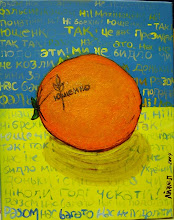Sunday, April 6, 2008
The "New Europe" pressures the "Old"
Despite strong opposition from the old vanguard of Europe (headed by France and Germany), both Ukraine and Georgia were promised eventual membership in the organization--certainly a victory for the two nations in the long-term. They did not receive the MAPs they came for at this particular summit, although it is thought that this may occur as soon as December. Ukraine and Georgia should thank Poland, the Baltic States, and the Czech Republic (part of the so-called "New Europe") for forcing the compromise from Western statesmen reluctant to disrupt the old "balance of power" in Europe or upset an irritable Russia. Indeed, it was by and large a successful summit for America and its eastern allies, whose old grudges compel them to occasionally push a Russian button or two: they also managed to wrangle unanimous support for Bush's pet project, a system of missile shields to be officially included as a component of NATO defense.
Wednesday, April 2, 2008
Bush swings by Ukraine; NATO membership unlikely

President Bush paid a visit to Kiev Tuesday to provide encouragement for Ukrainian NATO aspirations before today's summit of the military alliance in Bucharest. The American President has been a constant and vocal supporter of Ukraine's pro-Western government under Yushchenko, recently working at a new trade agreement between America and the young Eastern European democracy. Advocacy on Ukraine's behalf has been a big diplomatic gamble for Bush, threatening the success of sensitive talks with Putin later this week about the proposed missile-defense system in Eastern Europe. Bush highlighted Ukraine's proven commitment to international peace and justice efforts, referencing the presence of Ukrainian troops alongside NATO forces in Kosovo and Afghanistan. "Ukraine is the only non-NATO nation supporting every NATO mission."
Russia--Europe's main oil supplier, let's not forget--has made no secret of its opposition to NATO membership for Ukraine (as well as nearby Georgia). Nine former Soviet republics have already been integrated into NATO ranks, bringing the military influence of the West suffocatingly close to Russia's borders and adding to the Kremlin's growing sense of isolation. Putin's government has scathingly referred to NATO as a relic of Cold War days, now floundering for meaning. (For an understanding of the Russian perspective, take a look at this article.)
The issue is further complicated by the divided opinion of Ukraine's own population. Only one-third of Ukrainians (and those mostly ethnic Ukrainians) gave their support to NATO in a recent poll. Other groups, such as the (pro-Russia) Party of Regions and the (pro-USSR) Communist Party of Ukraine, have led large protests against joining NATO.
President Yushchenko spoke words of optimism about Ukraine's chances in contradiction to his dejected demeanor. But dejection was probably the appropriate response, considering that France and Germany have both expressed their disinclination to bring Ukraine and Georgia into the alliance, citing the negative pressure that would create on already strained ties between Russia and the West. Putin's position as summit guest-of-honor will do nothing to ease these diplomatic concerns. Since NATO reaches decisions by a consensus vote, even one opposed member could destroy Ukrainian ambitions.
Following the commencement of talks today, a NATO spokesman said that Ukraine and Georgia will most likely not be receiving a membership action plan this time around.
All this coincides with a resolution passed by the Russian legislature today, stating that the the 1930s famine that killed 3 million in Ukraine was not the result of a Soviet plot to exterminate the Ukrainians. The famine (which included other regions of the USSR) was doubtless caused by the grain confiscation of Stalin's collectivization policy. Historians still argue, however, whether this policy was aimed at the elimination of private property or an ethnic group. Yushchenko has been lobbying for the tragedy to receive internationally-recognized status as "genocide". The Russian government denounced such posturing and revealed a notable paranoia that the West might use this to their own geopolitical advantage. Even the 89-year-old Aleksandr Solzhenitsyn, the infamous Soviet dissident, shares the Kremlin stance: "[Western governments] have never understood our history, all they need is a ready fable, even if it is an insane one."
Subscribe to:
Comments (Atom)
